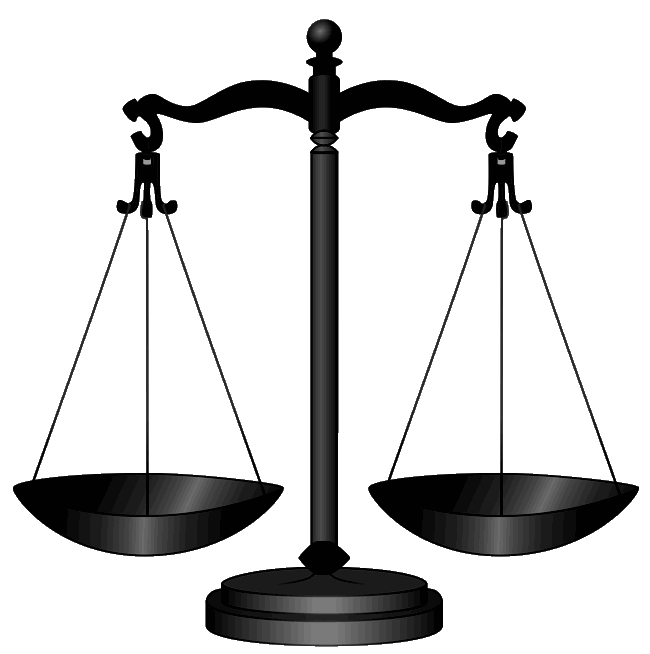|
2008 Pakistani Presidential Election
An indirect presidential election was held on 6 September 2008 in Pakistan. The Electoral College of Pakistan – a joint sitting of the Senate, National Assembly and Provincial Assemblies – elected a new president after the resignation of President Pervez Musharraf. As required by the constitution, Muhammad Mian Soomro (in his position as Chairman of the Senate of Pakistan) automatically became acting president on 18 August 2008, upon the resignation of Musharraf. The constitution required that a new president be elected by Parliament within 30 days; Soomro was considered loyal to Musharraf, and it was considered certain that he would be replaced in that election. Composition of the Electoral College The Electoral College of Pakistan is formed by a joint sitting of the six leading political bodies in Pakistan: * the Senate of Pakistan, * the National Assembly of Pakistan, * the Provincial Assembly of the Punjab, * the Provincial Assembly of Sindh, * the Provincial Assembly of ... [...More Info...] [...Related Items...] OR: [Wikipedia] [Google] [Baidu] |
Provincial Assembly Of The Punjab
The Provincial Assembly of the Punjab is a unicameral legislature of elected representatives of the Pakistani provinces, Pakistani province of Punjab (Pakistan), Punjab, which is located in Lahore, the provincial capital. It was established under Article 106 of the Constitution of Pakistan, having a total of 371 seats, with 297 general seats, 66 seats reserved for women and 8 reserved for non-Muslims. Site history The 2-story Assembly Chamber, residential hostels, and expansive lawns cover on the Shahrah-e-Quaid-Azam (the Mall). After it was completed in 1935, the Assembly Chamber housed the Assembly for the Punjab (British India), Punjab province. After the division of Punjab and the emergence of Pakistan, the building became the administrative center of Pakistani Punjab (Pakistan), Punjab. Assembly Chamber Designed by Bazel M. Salune, chief architect of the Architecture Circle of Punjab, the foundation stone of the Assembly Chamber was laid by Sir Jogindar Singh, Minister of A ... [...More Info...] [...Related Items...] OR: [Wikipedia] [Google] [Baidu] |
Pakistan Peoples Party (Sherpao)
Qaumi Watan Party ( ps, قومي وطن ګوند or ; ur, قومی وطن پارٹی), abbreviated as QWP and formerly called Pakistan Peoples Party–Sherpao (PPP–S), is one of the prominent political parties in Pakistan, that split away from the Pakistan Peoples Party just before the 2002 general election. PPP–S was named after its leader Aftab Ahmad Sherpao. Differences had cropped up between PPP Chairperson Benazir Bhutto and Senior Leader Aftab Ahmad Sherpao in 1999 and the latter was expelled from the PPP by the former, thus creating PPP–S. In October 2012, it was renamed to Qaumi Watan Party when it changed its political agenda and declared itself as a Pashtun neo-nationalist party. Name change The name and manifesto of the party were formally changed on October 17, 2012. It was renamed from "Pakistan Peoples Party–Sherpao" to "Qaumi Watan Party". The tri-color flag was also changed by replacing the green color with white. Aftab Ahmad Sherpao said Qaumi Watan Par ... [...More Info...] [...Related Items...] OR: [Wikipedia] [Google] [Baidu] |
Pakistan Muslim League (F)
The Pakistan Muslim League (F) ( ur, , acronym: PMLF, PML-F, PML (F)) is a nationalist and pro-Hurs clan political party in Pakistan. It is one of the Pakistan Muslim Leagues. The letter 'F' in its name stands for ''functional''. It is primarily associated with the Sindhi religious leader Pir Pagara. It was formed in 1985 when the Pakistani establishment decided to make Muhammad Khan Junejo the president of united PML. In response, Pir Pagara Syed Shah Mardan Shah-II parted ways with the mother league and formed his own party. After Mohtarma Fatima Jinnah was defeated by Ayub Khan in the Pakistani presidential election, 1965, Jinnah established the Pakistan Muslim League (Functional). Pir Pagaro Syed Shah Mardan Shah-II became the head of this political party. He was also nominated as first president of United Muslim League. He was Chief of Pakistan Muslim League-Functional (PML-F), and spiritual leader of the ‘Hur’ Jamaat organization. In the 2002 Pakistani general elec ... [...More Info...] [...Related Items...] OR: [Wikipedia] [Google] [Baidu] |
Muttahida Majlis-e-Amal
The Muttahida Majlis–e–Amal (MMA; Urdu: , "United Council of Action") is a political alliance consisting of conservative, Islamist, religious, and far-right parties of Pakistan. Naeem Siddiqui (the founder of Tehreek e Islami) proposed such an alliance of all the religious parties back in the 1990s. Qazi Hussain Ahmad endeavored for it and due to his efforts, it was formed in 2002 in a direct opposition to the policies led by President Pervez Musharraf to support for the War in Afghanistan. The alliance more densely consolidated its position during the nationwide general elections held in 2002. The JUI(F) led by its leader, the cleric Fazl-ur-Rahman, retained the most of the political momentum in the alliance, still some portion of the leadership comes from the JI. The MMA retained the provisional government of Khyber–Pakhtunkhwa and remained in alliance with PMLQ in Balochistan. Much public criticism and disapproval nonetheless grew against the alliance. Despite i ... [...More Info...] [...Related Items...] OR: [Wikipedia] [Google] [Baidu] |
Awami National Party
The Awami National Party (ANP; ur, , ps, اولسي ملي ګوند; lit. ''People's National Party'') is a Pashtun nationalist, secular and leftist political party in Pakistan. The party was founded by Abdul Wali Khan in 1986 and its current president is Asfandyar Wali Khan, grandson of Bacha Khan, with Mian Iftikhar Hussain serving as the Secretary-General. Part of the PPP-led cabinet of the Pakistani government during 2008−13, ANP's political position is considered left-wing, advocating for secularism, public sector government, and social egalitarianism. ANP was the largest Pashtun nationalist party in Pakistan between 2008−2013 with influence lying in the Pashtun dominated areas in and around Khyber-Pakhtunkhwa. They governed the province from 2008–2013 but lost to Pakistan Tehreek-e-Insaf in the assembly election of 2013. History Abdul Wali Khan's political career had been built on the tradition of intense Pashtun nationalism inherited from his father, Abdul ... [...More Info...] [...Related Items...] OR: [Wikipedia] [Google] [Baidu] |
Muttahida Qaumi Movement – London
The Muttahida Qaumi Movement (MQM) ( ur, , ), previously known as Muhajir Qaumi Movement, is a secular political party in Pakistan that was founded by Altaf Hussain in 1984. Currently the party is split between 2 main factions. MQM-London faction is controlled by Altaf Hussain from London, while MQM-Pakistan is run by Khalid Maqbool Siddiqui based in Pakistan. Its electoral symbol was a kite. It was founded as a student organization, All Pakistan Muhajir Student Organization (APMSO), in 1978 by Altaf Hussain. APMSO gave birth to the Muhajir Qaumi Movement in 1984. In 1997, the MQM removed the term Muhajir (that denotes the party roots among the country's Urdu-speaking community) from its name and replaced it with ''Muttahida'' ("United"). The MQM was generally known as a party that once held strong mobilizing potential in Karachi, having traditionally been the dominant political force in the city. The party has kept its influence over Pakistan's federal government as a key c ... [...More Info...] [...Related Items...] OR: [Wikipedia] [Google] [Baidu] |
Pakistan Muslim League (Q)
The Pakistan Muslim League (Quaid e Azam Group) ur, ; ''Pākistān Muslim Līg (Qāf)'', Acronyms: PML(Q), PML-Q, PMLQ, "Q League") is a Conservative nationalist political party in Pakistan. As of the 2018 parliamentary election, it has a representation of 5 seats. It previously served as an ally of former Prime Minister Raja Pervez Ashraf's government, and led a joint election campaign in 2013 alongside Pakistan Peoples Party (PPP) in Punjab and Balochistan provinces against its rival Pakistan Muslim League (N), a fiscally conservative and centre-right force. Its leadership and members were once part of the Pakistan Muslim League (Nawaz) presided by former prime minister Nawaz Sharif. After the 1997 general elections, political differences arose that ultimately led to the creation of a faction inside the party. The dissidents, led by Shujaat Hussain, called for strong and vocal support for the 1999 military coup d'état staged and led by then- Chief of Army Staff and C ... [...More Info...] [...Related Items...] OR: [Wikipedia] [Google] [Baidu] |
Pakistan Muslim League (N)
The Pakistan Muslim League (Nawaz) ( ur, , translit=Pākistān Muslim Līg (Nūn) PML(N) or PML-N) is a Centre-right politics, centre-right and Liberal conservatism, liberal conservative political party in Pakistan. Alongside the Pakistan Tehreek-e-Insaf (PTI) and Pakistan Peoples Party (PPP), it is one of the three major political parties of the country. The party was founded by former Prime Minister of Pakistan, Prime Minister Nawaz Sharif after the dissolution of Islami Jamhoori Ittehad, Islamic Democratic Alliance in 1993. The Party platform, party's platform is generally Conservatism in Pakistan, conservative, which involves supporting free market capitalism, free markets, deregulation, Tax cut, lower taxes and privatisation, private ownership. Although the party historically supported social conservatism, in recent years, the party’s political ideology and platform has become more Liberal conservatism, liberal on social and cultural issues. One of Muslim League schisms ... [...More Info...] [...Related Items...] OR: [Wikipedia] [Google] [Baidu] |
Pakistan Peoples Party
The Pakistan People's Party ( ur, , ; PPP) is a centre-left, social-democratic political party in Pakistan. It is currently the third largest party in the National Assembly and second largest in the Senate of Pakistan. The party was founded in 1967 in Lahore, when a number of prominent left-wing politicians in the country joined hands against the military dictatorship of President Ayub Khan, under the leadership of Zulfikar Ali Bhutto. Affiliated with Socialist International, the PPP's platform has formerly been socialist, and its stated priorities continue to include transforming Pakistan into a social-democratic state, promoting secular and egalitarian values, establishing social justice, and maintaining a strong military. The party, alongside the Pakistan Muslim League-Nawaz and the Pakistan Tehreek-e-Insaf, is one of the 3 largest political parties of Pakistan. Since its foundation in 1967, it has been a major centre-left force in the country and the party's leadership ... [...More Info...] [...Related Items...] OR: [Wikipedia] [Google] [Baidu] |
Constitution Of Pakistan
The Constitution of Pakistan ( ur, ), also known as the 1973 Constitution, is the supreme law of Pakistan. Drafted by the government of Zulfikar Ali Bhutto, with additional assistance from the country's Pakistani political parties, opposition parties, it was approved by the Parliament of Pakistan, Parliament on 10 April and ratified on 14 August 1973. The Constitution is intended to guide Pakistan's law, political culture, and system. It sets out the state's outline, the fundamental rights of the population, the state's law and orders, and also the structure and establishment of the institutions and the armed forces. The first three chapters establish the rules, mandate, and Separation of powers, separate powers of the three branches of the government: a Bicameralism, bicameral legislature; an executive branch governed by the Prime Minister of Pakistan, Prime Minister as chief executive; and an apex federal judiciary headed by Supreme Court of Pakistan, Supreme Court. The Const ... [...More Info...] [...Related Items...] OR: [Wikipedia] [Google] [Baidu] |
Khyber Pakhtunkhwa Assembly
The Provincial Assembly of Khyber Pakhtunkhwa is a unicameral legislature of elected representatives of the Pakistani province of Khyber Pakhtunkhwa, which is located in Peshawar, the provincial capital. It was established under Article 106 of the Constitution of Pakistan previously having a total of 124 seats, with 99 general seats, 22 seats reserved for women and 3 seats for non-Muslims.The Provincial Assembly and Government of Khyber-Pakhtunkhwa: An Overview After the merger of with the Province of |



